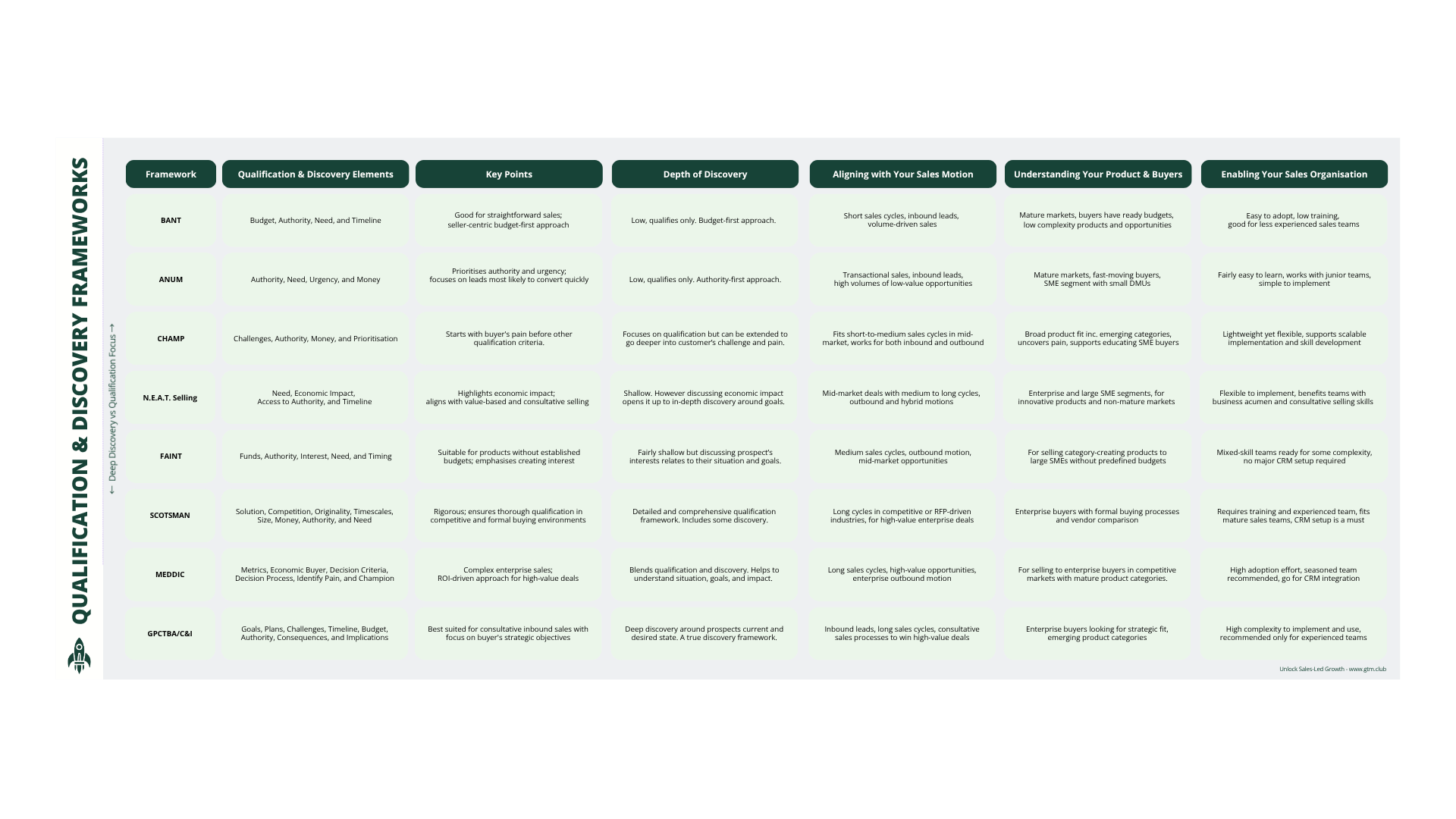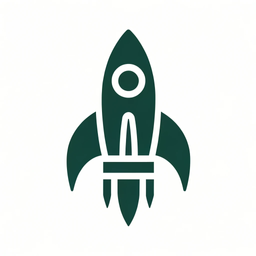Sales Qualification Isn’t a Gut Feeling, It’s a System. Here’s How to Train It.
Training your team to qualify better is an investment and an iterative process. The dividends will materialise over time through increasing win rates and more efficient resource allocation. Here are some guidelines for sales leaders to teach their teams better qualification practices.

Thorough sales qualification is critical for any sales team's success. Proper qualification means your team focuses on deals most likely to close, saving precious resources and boosting your win rate. So, in a nutshell, sales qualification is the foundation of effective selling. But how do you train your team to qualify leads and opportunities better?
How to Start Improving Sales Qualification?
Successful sales qualification training is key to a methodical approach and consistent implementation. Here is how to start.
Step 1: Select a Framework and Introduce It to Your Team
If you don't have one yet, choose a framework like MEDDIC, FAINT, or CHAMP. Your qualification framework should reflect your sales process complexity, product offering, and overall sales team structure and competence. Spend time researching frameworks, and choose the most closely aligned with your needs. Explain to your team why this framework was chosen and how it directly impacts their daily selling tasks.
Present the chosen framework, the rationale behind its selection, and its expected outcomes.
Once you select a framework, clearly communicate it across the organisation. Organise a dedicated session where you present the framework, the rationale behind its selection, and its expected outcomes. This initial session should explain the benefits clearly, demonstrate practical use, and provide a vision for improved sales performance. Openly discuss your team's challenges and address any questions or concerns upfront.
If you are already running with one sales qualification framework, revisit it with your team to ensure clarity and alignment. Use this opportunity to review core criteria, confirm that everyone fully understands the practical application, and discuss any recent insights or changes based on actual customer interactions. Reinforcing the reasons behind the choice and refreshing your team's familiarity with the framework can significantly boost its consistent usage.
GTM Club’s Guide for Selecting a Qualification Framework is available as a free digital download for all our members.
Join now to download and receive all member benefits!
Step 2: Engage Your Sales Team to Define the Qualification Criteria
Ensure your salespeople actively participate in selecting or refining the qualification criteria. So, let's say you go with CHAMP. What challenges are you looking for, and who are the decision-makers that need to be involved to qualify the sales opportunity?
Insights from front-line sellers are invaluable.
Insights from front-line sellers are invaluable. Facilitating this collaborative approach helps secure their buy-in, enhances commitment to using the framework, and ensures the criteria match actual sales interactions. This inclusive process also boosts morale and creates a stronger sense of team ownership.
Approach this with real-life examples when possible: What can you as a team learn from recently won or lost opportunities? Are there some similarities in won opportunities that you should look for (like buy-in from a CRO early on) or blind spots to avoid before they bite your team (such as specific customer segments being able to invest only through a successful pilot term)?
Step 3: Provide Cheat Sheets, CRM Integration, and ICP Documentation
Offer easily accessible cheat sheets and scripts that detail specific qualification questions to ask prospects, along with clear green/red light indicators for answers. For example, questions like "Which CRM are you using?" might have clear criteria for a positive answer (one of the CRMs you can integrate your service to) and an unqualifying reply (using a CRM that you do not support).
Document your Ideal Customer Profile in detail and use it as a benchmark for qualification. Clearly outline characteristics such as company size, industry, specific pain points, and decision-maker profiles. Regularly revisiting and updating the ICP ensures your qualification process stays aligned with evolving market conditions and insights.
Tools should support sales qualification and not make it feel like sales teams are there to serve the system.
Furthermore, integrate these resources into your CRM to ease the qualification process. Ensure your CRM has data fields corresponding to your qualification framework criteria, making data entry intuitive and consistent. Regularly update your CRM setup based on feedback from your team, maintaining alignment with real-world usage. Tools should support sales qualification and not make it feel like sales teams are there to serve the system.
Improving Sales Qualification is an Ongoing Process
Qualification isn't a "set and forget" activity. Ongoing reinforcement and adaptation are essential and require constant monitoring and support. Consider at least the following practices.
- Continuously adjust and refine your qualification criteria based on feedback from real opportunities, both lost and won. Create a structured feedback loop where your team can share insights and suggestions, ensuring continuous improvement and relevance of your qualification framework.
- Don't leave your team alone with just resources. Actively follow up by joining customer calls to observe and coach on the framework's application. Providing real-time, constructive feedback helps reps develop their skills faster and maintains consistent standards across your team.
- Review opportunities in the pipeline to ensure alignment with the qualification criteria. Make pipeline reviews collaborative,, using them as coaching sessions to reinforce proper qualification techniques and quickly address gaps or misunderstandings.
- Organise role-playing sessions to reinforce the training. These interactive sessions allow your reps to practice qualification conversations in a safe environment, build confidence, and identify specific areas for improvement in their approach. Make these sessions engaging and supportive to encourage open participation.
- Track and measure progress in your CRM, ensuring reps consistently input qualification data and review these inputs against results. This helps you quickly identify areas needing additional training or support and provides tangible evidence of your qualification efforts' impact on sales outcomes.
Leverage AI to Support Your Sales Team
AI tools, such as conversation intelligence and real-time coaching platforms, significantly enhance your team's qualification abilities. These platforms automatically capture critical qualification points during calls, flagging potential blind spots or missed opportunities in real-time. While AI tools don't replace foundational training, they greatly complement your ongoing reinforcement efforts, ensuring no critical detail slips through unnoticed and continuously raising your team's qualification standards.

Check out our deep dive into how AI impacts sales qualification.
Training your team to qualify better is a strategic investment and an iterative process that pays dividends in improved win rates, shorter sales cycles, and more efficient resource allocation. Success lies in selecting the framework, securing team buy-in, providing comprehensive support tools, and maintaining consistent follow-up practices. A qualification framework used by no one is just hot air.






